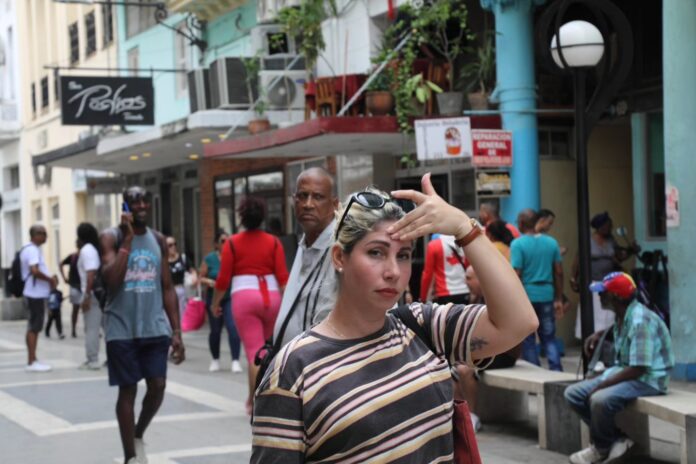
By Eduardo N. Cordovi Hernandez
HAVANA TIMES – Every day here in Havana, and I suppose throughout Cuba as well, because it’s the same thing happening worldwide, we spend our time passing judgments and delivering sentences. That’s how we humans operate. It’s not that doing so is good or bad, or whether it’s right or leads to error. But doing it daily becomes a habit, if not a vice, without us realizing. Mostly because, since we are born, family, school, and later society instill it in us and even reward us for doing so. Also, family, school, and society are the same entities that sanction us to varying degrees based on whether these judgments or verdicts align with their expectations.
This makes us lose an innate quality of our species: originality. We act through typical, pre-designed, anticipated reactions. We become automated, predictable, manipulable, and easy to control. Domesticated.
I’m not saying this to convince you; I have no interest in being right. I’m not trying to save the world. I’m not defending a hypothesis. Instead, I’m providing an impartial report on how I see my life amid the lives of everyone else. I aim to report on our lives. I speak about the situation of us Cubans, both those living in Cuba and those scattered around the world, something I can understand well because the internet has made the world very small.
Writing helps me understand my surroundings, guide my judgments, and make determinations for more convenient forms, for my own convenience.
I write about reality without theoretical intent, more for utility.
I observe my close and brief day-to-day life, the simple interactions in the neighborhood, news from the media, or history. I realize that since time immemorial and since people existed: We are immersed in the same problems, and We continue trying to solve them using the same methods.
The problems include seeking water, food, shelter from the weather, finding someone to have sex with, dealing with the deterioration and loss (temporary or definitive) of precious things and loved ones, and also the progressive decline of health and our own lives, just to name a few.
As for the methods, after almost ten thousand or more years, they remain the same: trial and error, violence, and magic.
Let’s analyze just violence. The difference between a blow with a club and a gunshot is only technological. Both kill or not depending on where they land, similar to the difference between riding a donkey or a Porsche. Although, yes, there is another difference. On the donkey, you might arrive late at your destination. In the Ferrari you won’t be late, but you may not arrive at all. Tell me then, does humanity progress?
For the results obtained, it doesn’t matter whether it’s the shaman’s chant in the village or the surgical techniques of a first-world hospital. In the end, in both cases, some survive, and others die. The possibilities always are “Anything can happen.” So, does humanity progress?
After ten thousand years of culture and civilization, we still react the same way as in the age of caves, the same insecurity, and the same violence. Does humanity truly progress?
All of this shows me that humanity does not progress, at least not within an appreciable scale. This contradicts what scientists and politicians tell us…
The point is, I repeat: Every day, we spend our time passing judgments and delivering sentences. Doing it daily becomes a habit, if not a vice, and we end up acting like predictable little robots, manipulable, and easy to control. Domesticated.
So in this story, as beings, we also allow ourselves the luxury of considering that we can evaluate reality. Thus, we have or fabricate criteria, reflections, opinions, judgments, reasons, hypotheses, theories, and ideologies that we defend or attack. We create truths that divide us, obsess us, and lead us to kill each other over them. That is the basis of the history of humanity. The intellectual effort to preserve the memory of how crime becomes authorized and even honorable for defending ideas, supposed truths about a reality veiled by our imagination. It’s almost laughable!
But every day, here in Havana, and I suppose the same in all of Cuba, because the same thing happens worldwide: we spend our time complaining about the situation and the government. In other countries, the situation is more difficult. They have to divide blame among several political parties. Here in Cuba, thank God, we don’t have that problem.
Read more from the diary of Eduardo N. Cordovi here on Havana Times.




